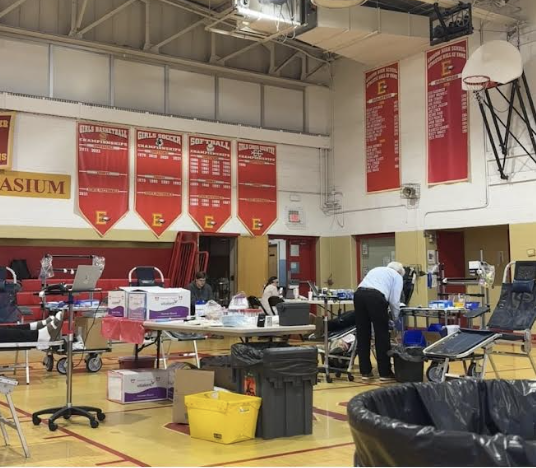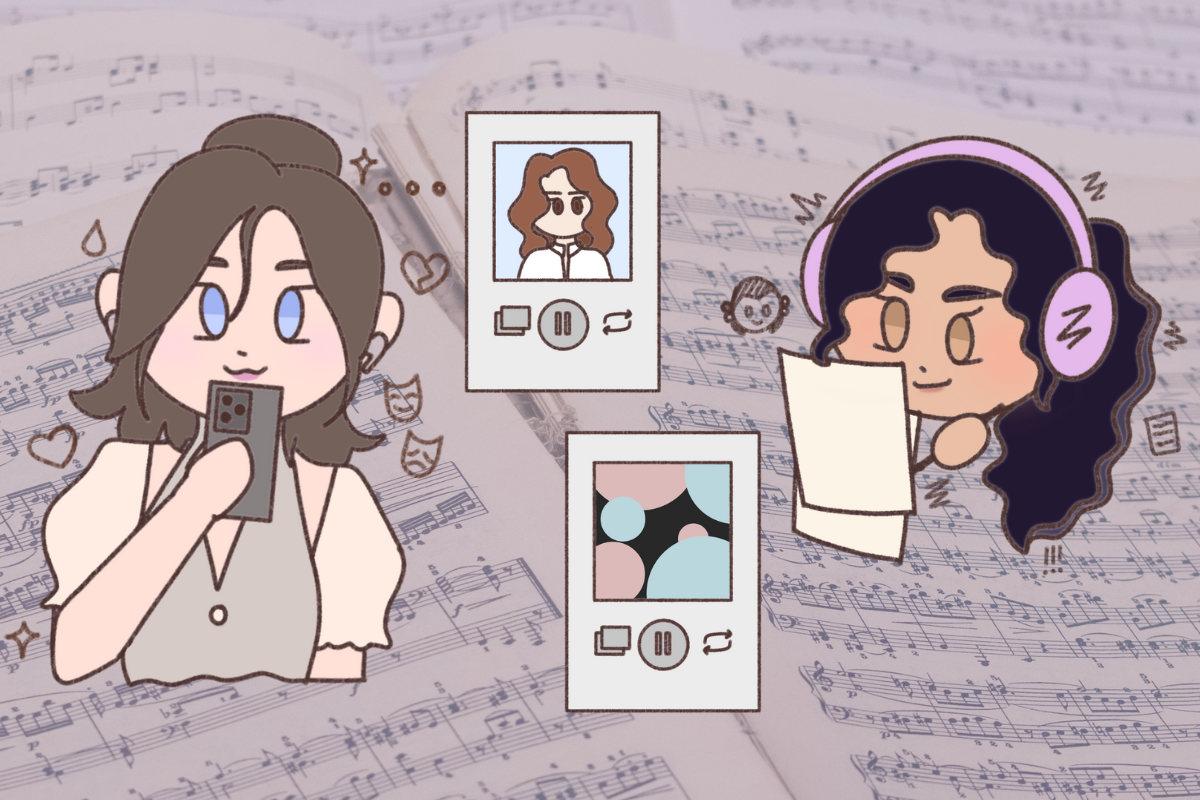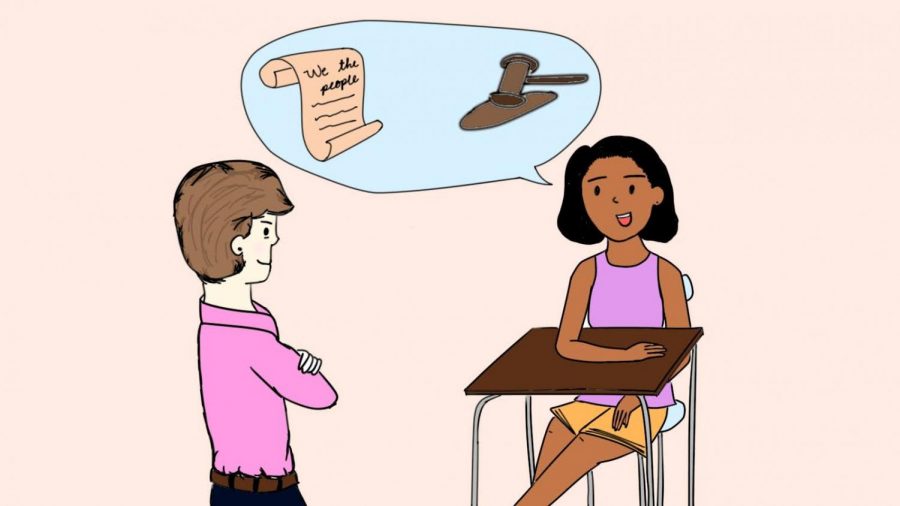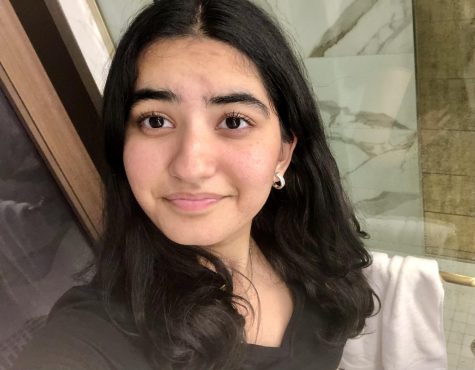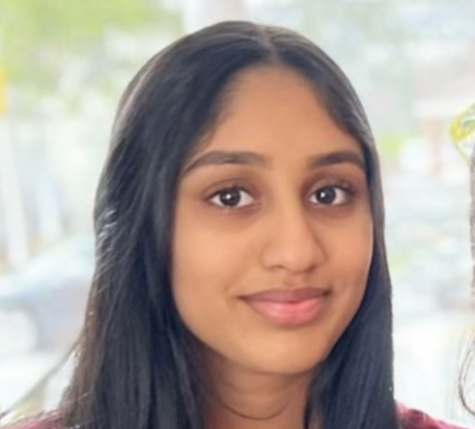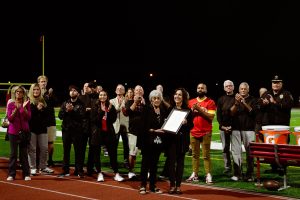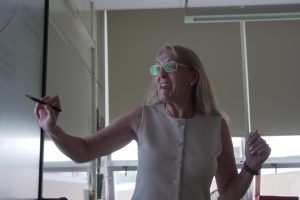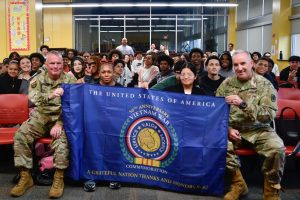Public Philosophy Project: Students’ Rights Beyond the Classroom
November 19, 2021
What sorts of rights do I have? What even is a natural right? Are my rights protected or are they infringed upon? In the Public Philosophy Project seminars, these questions were addressed to students, offering them a greater understanding of the connection between the Constitution and their present-day life while allowing them to utilize these foundational concepts in the future.
Dr. Gene Nasser, of the History Department, organized four Public Philosophy Project seminars for students at Edison High School, along with philosophy professors from Middlesex College.
These events touched on basic concepts regarding the Constitution and the Bill of Rights. Nasser, a world history teacher at EHS, coordinated these events with professors Patricia Payne, Dr. Giuseppe Rotolo, and Dr. Anthony Celi. Their goal was to spread philosophy to high schoolers who may not encounter this information in their daily lives.
“Even though you guys are high schoolers, you are also citizens of the United States,” said Celi. “The general idea of this project is that you may or may not have rights or freedoms that you are unaware of. The goal is to try to get you guys to deeply think about your situation. Ultimately, you guys are going to grow up and be in this political world. So, you should be informed and know how to engage in arguments about your rights.”
The first seminar considered the teachings of liberties and natural rights in the Constitution, discussing philosophical aspects of this document and events in the American Revolution towards a younger audience. Professor Payne addressed students from various grades and classes. Throughout the presentation, Payne relayed short stories, then asked the audience questions related to the Constitution.
The second seminar focused on the natural rights and liberties of the Bill of Rights. Celi presented his unique philosophical ideas at this event and shared details about negative and positive liberties. Negative liberties provide citizens with freedom by removing any prohibitions or restraints. Freedom of religion is an example of this, as no restrictions are controlling who or what people can worship. Positive liberty is the belief that citizens have certain freedoms because it has been deliberately granted to society; for instance, the freedom of expression.
“I found the talks to be thought-provoking, encouraging me to challenge my assumptions and question where exactly power comes from,” said Ali Ahmed ’22. “As a naturally curious person, I enjoyed the opportunity to listen to professors talk about the Constitution and the nature of liberty.”
Other students agreed with Ahmed. Avinash Aravind ‘23 said, “I thought it was generally cool to see the thought behind the rights and privileges we have that we often take for granted but didn’t think too much about how and why those rights exist.”
The professors brought these events to the school, seeing them as an essential way for students to learn about philosophical ideas to aid them when they become older. Students were taught to be aware of the rights they are guaranteed because adult figures tend to isolate philosophical ideas from historical documents and focus only on facts. Through using the information learned in these lectures, students can gain awareness of their natural rights and advocate for themselves.
Mr. Mark DiGiovacchino, History Department supervisor, organized snacks and drinks for students who attended the event with the cooperation of Ms. Danielle Heath’s consumer science classes.
There will be future seminars hosted on February 18, 2022, regarding welfare and property, and another on March 25, 2022, discussing tranquility and defense.






